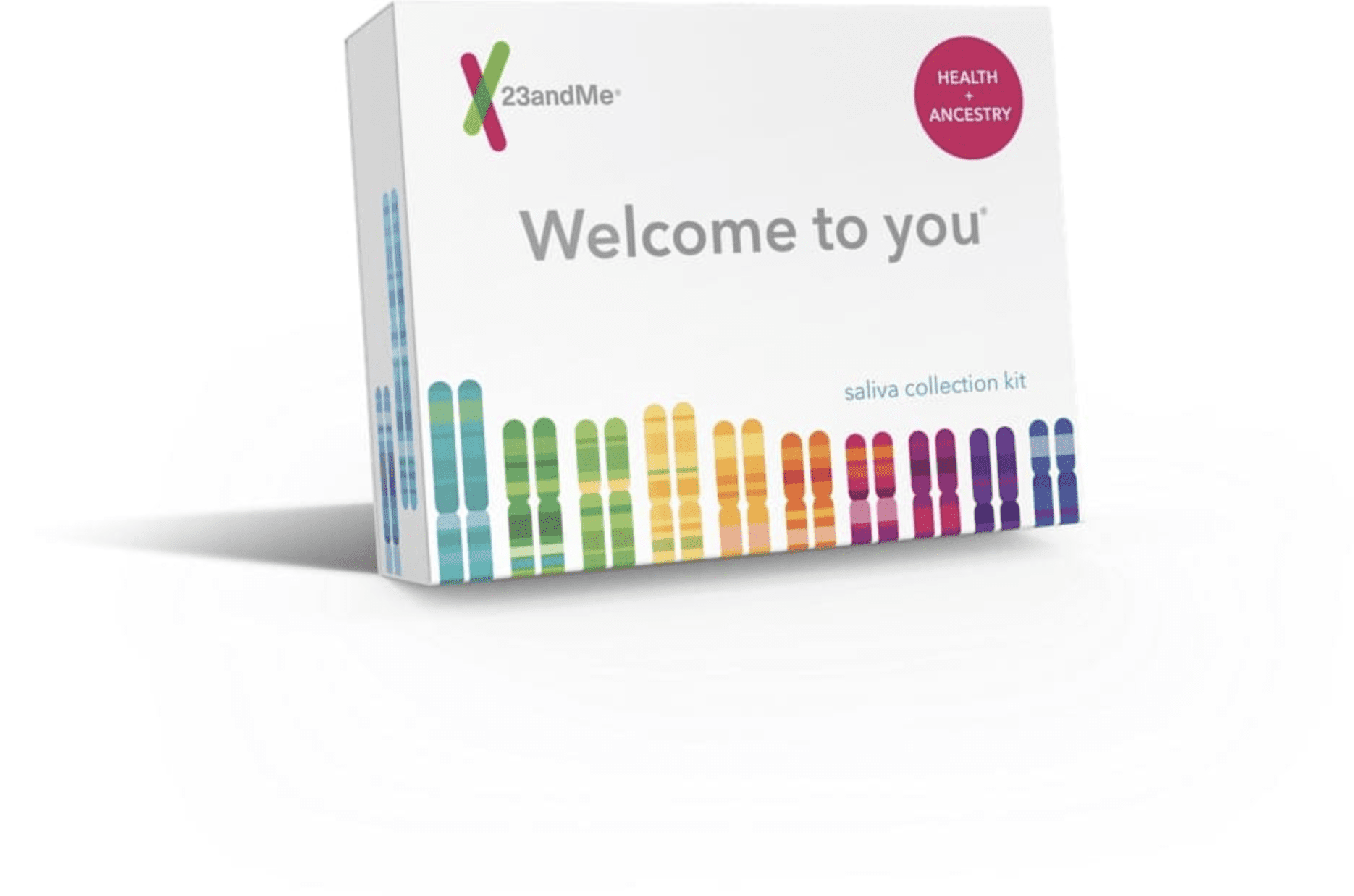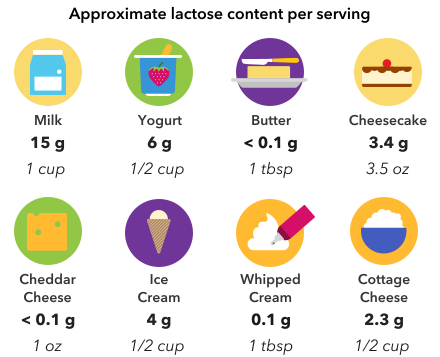How it works
Lactose is a type of sugar found in dairy products. Most babies are born with the ability to digest lactose, which helps them process their mother’s breast milk. But as children grow older and begin to eat different foods, their bodies can stop producing lactase, the enzyme that digests lactose.
In most cases, you can literally trust your gut. That’s because a healthy human intestinal tract is home to trillions of bacteria that help digest the food we eat and keep our systems in working order. However, when someone who doesn’t produce lactase noshes on mac & cheese or a bowl of ice cream, the bacteria digests the lactose instead, producing gases that lead to bloating, and abdominal pain. Sounds like a blast, right?
The genetic link
Your diet, digestive system, and other health conditions can impact whether you experience symptoms of lactose intolerance. Some people are also more genetically likely to be lactose intolerant than others. Located on Chromosome 2, the LCT gene contains instructions for making the enzyme lactase. People with a functioning LCT gene produce lactase and can process dairy foods without unpleasant symptoms.
However, some genetic variants can cause the LCT gene to switch off, leading to low lactase levels in the gut. If you have one of these variants, consuming dairy products can lead to those uncomfortable moments that force some folks to run to the nearest bathroom.

Did you know?
Not all cheese products contain lactose. That’s good news if you’re lactose intolerant and cheese is that habit you just can’t quit. Next time you’re at the store, check out the nutrition label on your favorite cheese. Lactose is a sugar, so if the label says 0 grams of sugar, then the cheese is probably low-lactose. Another tip? Try out some aged cheese, as age tends to lower lactose levels.
Explore more
What do your genes have to say about lactose intolerance? 23andMe’s Health + Ancestry Service can help you find out based on a genetic marker that influences lactose intolerance. Listen to your gut, pick up one of our kits, and we’ll tell you whether you’re likely to be lactose intolerant based on your genetics.

Health + Ancestry Service
References
Kindstedt PS. (2013). “The Basics of Cheesemaking.” Microbiol Spectr. 1(1).
McSweeney PLH. (2004). “Biochemistry of cheese ripening.” Int J Dairy Technol. 57(2/3).

Leave a Reply